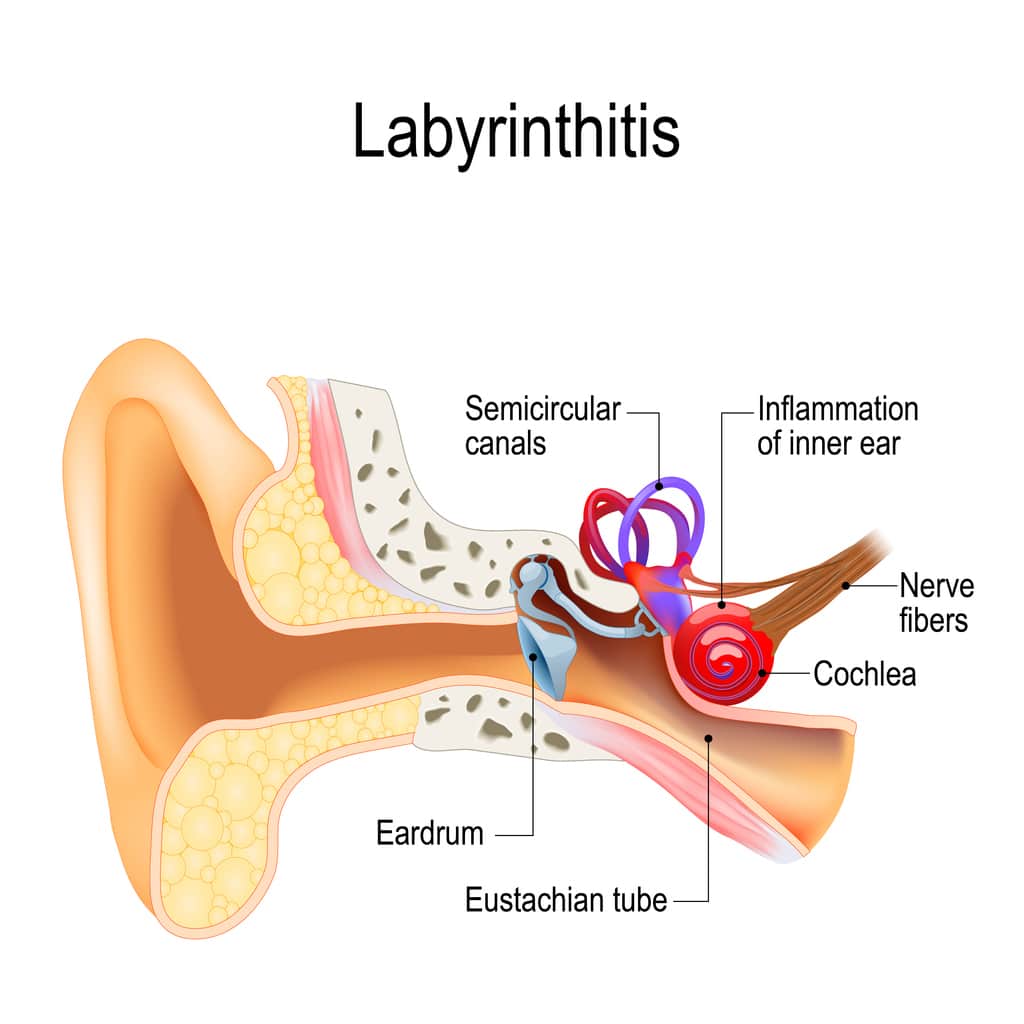Labyrinthitis: Causes, Symptoms, and Treatments
Labyrinthitis is a disorder of the vestibular nerve of the inner ear, also called the labyrinth. There are two vestibular nerves that run through the labyrinth, sending information about balance and head position from the inner ear to your brain. When the vestibular nerve is infected or inflamed, it disrupts the flow of information to the brain and can cause balance issues, nausea, and tinnitus.
Can I prevent labyrinthitis?
Unfortunatley, this condition is not preventable. The single most common cause of the disorder is a viral infection; that makes avoiding viral infections the best way to avoid labyrinthitis. If you have any ear conditions, infections, or head injuries particularly around your ears, you should make an appointment with an audiologist. Labyrinthitis can be severe enough that some individuals are unable to walk without assistance during the healing process.
How long does viral labyrinthitis last?
The effects of the condition typically last one to two months.
If the ailment is brought on by a flu or cold virus, the worse symptoms often resolve in three weeks or so. Walking may still be difficult and dizziness and vertigo are common up to seven weeks after the initial onset.
Causes of Labyrinthitis

Labyrinthitis can occur at any age but is most common in people aged 30 – 60 years old.
A variety of factors can cause the disorder, including:
- Respiratory illness: Most often caused by a viral infection of the upper respiratory infection from a cold or flu virus.
- Viral infection of the ear: Typically due to an infection of the middle ear and occurs frequently in children.
- Herpes viruses:
Associated with vestibular neuritis, though studies indicate 10 – 15% of patients do not have HSV-1 or HSV-2.
- Bacterial infection: Usually caused by a chronic middle ear infection due to bacteria penetration.
- Stomach viruses
- Infectious organisms
Smoking, drinking large quantities of alcohol, having a history of allergies and taking certain prescription or over-the-counter medications can increase your risk of developing labyrinthitis.
Labyrinthitis Symptoms

Symptoms of labyrinthitis include:
- Vertigo: The feeling of movement, often spinning, when you are stationary.
- Dizziness
- Nausea
- Vomiting
- Tinnitus: An audible buzz, hum, or ringing in your ears with no external cause.
- Trouble concentrating
- Problems with balance
In general, severe symptoms last just a few days; however, these symptoms make everyday tasks very difficult. Full recovery often takes several weeks, but could take months.
Labyrinthitis Treatments
In order to make a diagnosis of labyrinthitis, your doctor will complete a physical exam and may test your hearing and/or balance. If the underlying cause of labyrinthitis can be determined, your doctor will first treat that. The two most common treatment options are determined by the source of your labyrinthitis.
- If a virus is causing symptoms, such as herpes, antiviral medicine is prescribed.
- If a bacterial infection is causing symptoms, an antibiotic medicine may be prescribed.
Labyrinthitis will usually go away on its own, which takes several weeks. In order to manage your symptoms, your doctor prescribes a combination of anti-nausea medications, anti-dizziness medications (vestibular suppressants) and steroids.
If symptoms still present, your doctor may recommend a balance rehabilitation program – the purpose of which is to retrain the brain to adapt to changes in the balance system.